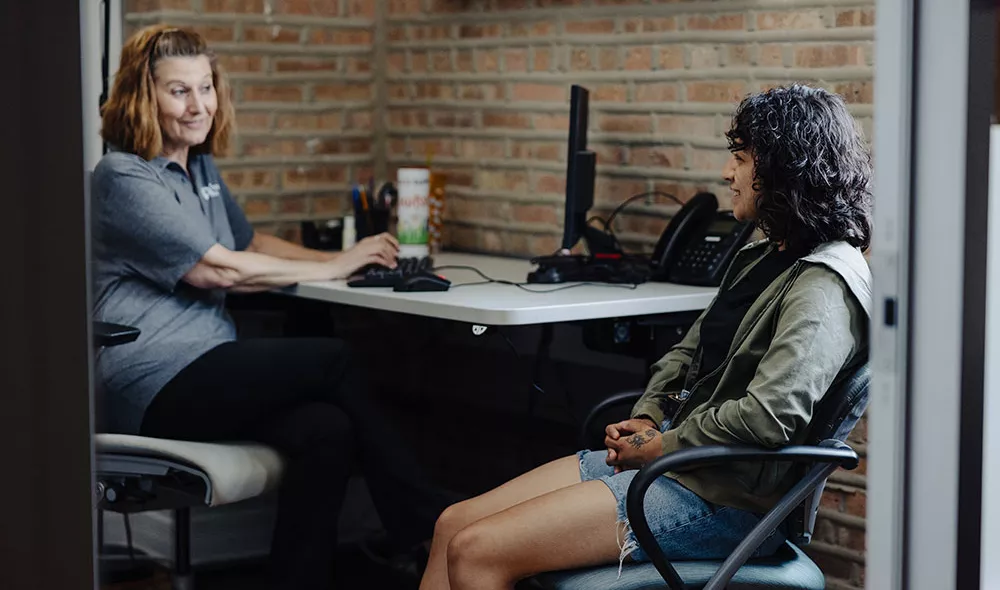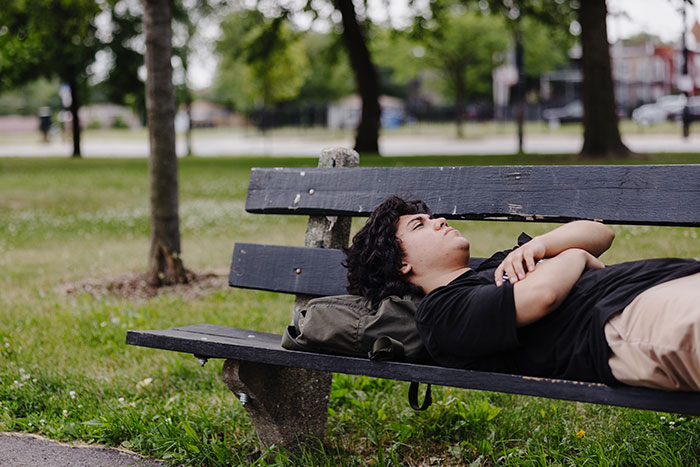Covenant House New Jersey builds safety for trafficking survivors across the Garden State.

Once Covenant House New Jersey started taking a close look at human trafficking experiences among our residents 10 years ago, there was no turning back. Today, CHNJ not only offers expert care to young people facing homelessness and trafficking, but they also are the statewide provider of services to trafficking survivors of all ages and housing statuses across the Garden State.
“Since becoming the statewide provider in October 2020, we’ve served more than 400 known victims of sex trafficking, labor trafficking, and forced criminality,” says Kaitlyn Zedalis, associate director of research, learning, and advocacy for CHNJ’s Covenant House Action and Research Tank (CHART)
As we mark Human Trafficking Prevention Month across the United States this January, it’s worth underscoring that CHNJ also provides critical training to hospital, law enforcement, and social services personnel to help them identify trafficking victims and better understand how to help them using a trauma-informed lens.
Homelessness + Trafficking Often Intersect

Covenant House New Jersey was founded in Newark and Atlantic City in 1989 to provide housing and services to young people facing homelessness. Because of that work, says Senior Director of Services Rolidel Czekajlo, who has been on staff 21 years, “we found we had young people who were experiencing human trafficking, but at that time we weren’t doing assessments for trafficking.”
That led CHNJ, in 2015, to partner with researchers at the Icahn School of Medicine at Mount Sinai Hospital to understand the prevalence of human trafficking experiences among CHNJ youth and build evidence-based services specifically for survivors of all forms of trafficking. From that long-standing partnership, a new assessment tool was created: Quick Youth Indicators for Trafficking, or QYIT.
“QYIT was the first scientifically validated screening tool for sex and labor trafficking, and it’s gone on to be used all over the country,” says Kaitlyn.
Because of the development of QYIT and their expertise in anti-trafficking work, CHNJ went on to become the statewide provider of services to trafficking victims regardless of their age or housing status; this, in addition to their ongoing work to relentlessly support young people on a path from homelessness to sustainable independence.
CHNJ Work with Trafficking Survivors is Two-Fold
“So, our work with trafficking survivors is two-fold,” says Rolidel. “Here at the shelter, we work with young people facing homelessness, and, often, we assess them as positive for human trafficking experiences. So, they live with us and receive all our wraparound services. They get mental health services, medical services, legal services, and case management services right here.”
Kaitlyn notes, “Labor trafficking by forced criminality is the most common type of labor trafficking among youth experiencing homelessness. It’s not uncommon for a victim of trafficking to be forced to commit a crime, either in service of the trafficking or where the labor is in and of itself a crime. Because this is so common, that access to legal support is so important.”
“Then we have three resource specialists who work directly with the trafficking survivors who come to us through our statewide work,” Rolidel continues. They come to CHNJ via a 24-hour hotline or through referrals by hospital, social service, or law enforcement personnel. “We work with every phone call we receive. We do a quick assessment of the caller’s needs and start providing those services right away. We then have 90 days to assess the trafficking experience.”
The resource specialists connect survivors to the services they need, working with vetted community partners in trauma-informed programs across the state to ensure the best fit for the survivor’s needs. Those needs may begin with safety and housing, and may include medical and mental health support, legal and documentation services, clothing, transportation, and food. The specialists go out to communities across the state to ensure the quality of care.
“When we began the statewide work, we started with two resource specialists. Now, we have three,” Rolidel says, referring to how this aspect of CHNJ’s work has grown over the past four years.
The Critical Training Piece
Over the last two years, Covenant House New Jersey began rolling out critical training for hospital, law enforcement, and social services personnel, who often are among the first professionals to come into contact with a trafficking victim. Last year, CHNJ provided training to more than 1,900 of these professionals.
For instance, Kaitlyn says, “Research suggests that the majority of trafficking survivors interact with a health care provider at some time during their trafficking experience, and the most common place where they do so is in the emergency room.” CHNJ trainers talk to medical professionals about what trafficking is, how it relates to the medical setting, how to talk with a patient they suspect is a victim, how to use the QYIT screening tool, and how to connect survivors to CHNJ’s services.
Training for social service providers includes a human trafficking 101 module to help them gain a deeper understanding of the various forms trafficking takes, and the training for law enforcement, accomplished in conjunction with the New Jersey Division of Criminal Justice and Homeland Security, focuses on the relevant laws and trauma-informed interviewing. “Our piece is on being victim-centered: how that looks and feels, and why it’s important,” Rolidel says.
CHNJ is also playing a critical role in training personnel across our Covenant House federation and helping our sites update their intake process by employing the QYIT screening tool.
The upshot of all that collaboration together with CHNJ’s high-quality services, is the opportunity for a better life for survivors at Covenant House, in the Garden State, and ultimately across the country as the work of the anti-human trafficking team expands.
What you can do: during Human Trafficking Prevention Month:
- Get informed: Learn the basics of human trafficking.
- Read a story of survivorship, transformation, and support: “Natalie Proud: Covenant House Pennsylvania’s Champion for Trafficking Survivors.”
- Donate to support survivors in our care and help further research and training.


